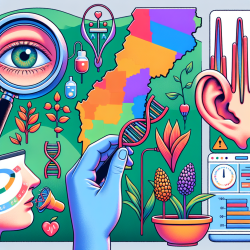Attention is a concept that has long puzzled researchers and practitioners alike. The article "No one knows what attention is" by Hommel et al. (2019) presents a compelling argument that challenges traditional views on attention. Instead of viewing attention as a unitary construct, the authors propose a synthetic approach that focuses on behaviorally relevant selection processes. This blog aims to help practitioners, particularly those providing online therapy services to schools, to improve their skills by implementing the insights from this research.
The research article highlights several key points:
- Attention is not a singular cognitive or neural system but a set of processes that contribute to task-specific performance.
- Traditional views on attention have led to circular explanations and hindered scientific progress.
- A synthetic approach, focusing on well-understood mechanisms, can better account for the phenomena traditionally attributed to attention.
For practitioners, especially those working with children in online therapy settings, these insights can be transformative. Here are some practical steps to implement the outcomes of this research:
1. Focus on Specific Behaviors
Instead of using the broad term "attention," identify specific behaviors and processes that need improvement. For example, rather than saying a child has "attention issues," specify whether the child struggles with focusing on a task, ignoring distractions, or maintaining sustained effort.
2. Utilize Data-Driven Assessments
Use assessments that provide detailed information about different aspects of attention-related behaviors. Tools like the Conners' Continuous Performance Test (CPT) can help identify specific areas where a child may need support.
3. Tailor Interventions to Individual Needs
Design interventions that target the specific processes identified in the assessments. For instance, if a child struggles with selective attention, activities that practice filtering out distractions can be beneficial.
4. Monitor Progress and Adjust Strategies
Regularly monitor the child's progress and adjust interventions as needed. Use data to guide decisions and ensure that the strategies are effective in improving the child's specific attention-related behaviors.
5. Encourage Further Research
Stay updated with the latest research and be open to incorporating new findings into practice. Encourage a culture of continuous learning and improvement within your team.
By focusing on specific behaviors, using data-driven assessments, tailoring interventions, and encouraging continuous learning, practitioners can create better outcomes for children. This approach aligns with the synthetic perspective proposed by Hommel et al., emphasizing the importance of understanding and addressing the underlying processes that contribute to task-specific performance.
To read the original research paper, please follow this link: No one knows what attention is.










